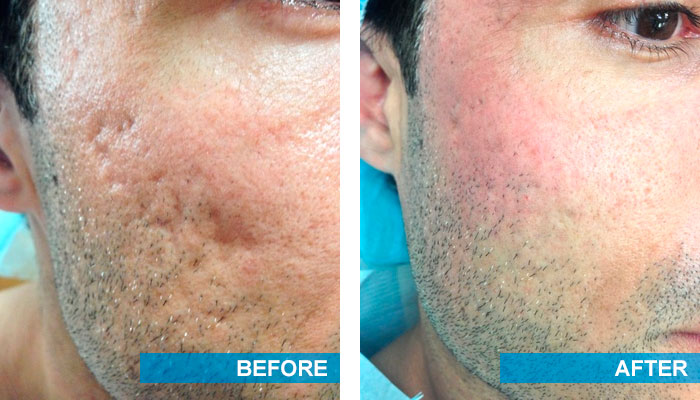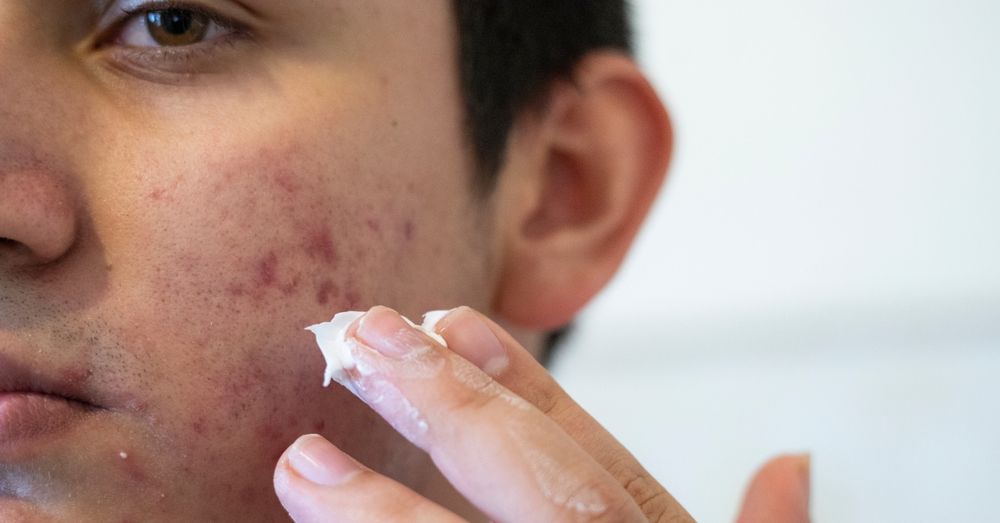Comprehensive Acne and Acne Scars Treatment: Recover Your Skin's All-natural Elegance
Comprehensive Acne and Acne Scars Treatment: Recover Your Skin's All-natural Elegance
Blog Article
The Influence of Skin Problem on Confidence: Effective Strategies for Dealing With Acne Marks
Skin conditions, specifically acne, can exceptionally influence an individual's self-worth, frequently developing barriers to social interactions and individual expression. Understanding how these strategies can foster confidence might reveal vital understandings into alternative treatment techniques that equip individuals to welcome their skin and enhance their overall high quality of life.
Psychological Effects of Acne
Acne, a widespread skin disease affecting millions worldwide, can have extensive psychological results on people. The visible nature of acne usually causes significant psychological distress, including sensations of humiliation, low self-confidence, and social withdrawal. Numerous people with acne may experience anxiety, specifically in social situations, where they are afraid judgment or negative assumptions based on their skin problem.
Research shows that the mental influence of acne can be as debilitating as the physical signs and symptoms, adding to clinical depression and body dysmorphic disorders sometimes. Adolescents, that are often a lot more delicate to peer viewpoints, might be especially vulnerable, causing harmful effects on their social interactions and academic efficiency.
Additionally, the preconception connected with acne can worsen feelings of isolation, as people might perceive themselves as less eye-catching or socially appropriate. This psychological burden can hinder personal connections and general quality of life. Therefore, it is crucial for healthcare carriers to address both the physical and mental facets of acne, supplying comprehensive support that consists of therapy and educational sources to aid people manage their condition properly.
Recognizing Acne Marks
Acne marks can materialize in various kinds, largely classified into atrophic, hypertrophic, and keloid marks. Atrophic marks are characterized by a loss of tissue, resulting in clinical depressions in the skin, while hypertrophic marks include raised cells that creates in action to inflammation.
Skin type and genes also play critical functions in mark development. Comprehending the organic mechanisms behind mark development helps in attending to the emotional consequences, as people might perceive their marks as irreversible markers of a past battle.
Topical Therapy Options
While various therapy approaches exist for addressing acne scars, topical choices are typically the initial line of defense for individuals seeking to enhance their skin's look - skin rejuvenation treatments. These treatments can be efficient in minimizing the presence of marks and advertising overall skin health and wellness
Common topical agents consist of retinoids, which enhance cell turn over and encourage the regrowth of skin cells, consequently boosting texture and tone. In addition, alpha hydroxy acids (AHAs) and beta hydroxy acids (BHAs) scrub the skin, eliminating dead skin cells and advertising a smoother surface area.

Over-the-counter items having ingredients like niacinamide and licorice essence might likewise help in decreasing swelling and staining (acne scars). It is vital for people to seek advice from a skin specialist to determine the most proper topical therapies customized to their one-of-a-kind skin type and mark features, making the most of the potential for effective results
Advanced Dermatological Treatments
For people seeking a lot more significant and prompt renovation in the appearance of acne marks, advanced skin-related treatments provide a series of efficient alternatives. These treatments are developed to target deeper skin layers, fostering considerable skin regeneration and renovation.
One preferred method is laser treatment, which makes use of focused light to resurface the skin and decrease the look of marks. Fractional laser treatments, in certain, work as they advertise healing while targeting particular locations, minimizing downtime. Chemical peels, which entail the application of acidic solutions, can also be helpful by exfoliating the skin and promoting new cell development.
Microneedling is one more innovative alternative, entailing you could try here making use of click site fine needles to produce micro-injuries that boost collagen production. This treatment boosts skin texture and decreases the visibility of marks gradually. Additionally, dermal fillers might be made use of to elevate depressed marks, giving immediate volume and smoothing the skin's surface.

Building Self-confidence Via Treatment
When people focus on self-care and embrace effective treatments for acne scars,Confidence usually grows. The journey towards boosted skin is not only concerning aesthetic outcomes; it likewise considerably influences emotional health (acne treatment for sensitive skin). People who proactively take part in their skin care routines often experience a boost in self-worth, as they see tangible improvements in their skin's look
Developing an individualized skin care regimen that consists of both specialist treatments and topical treatments is essential. Normal cleaning, exfoliation, and moisturization can help maintain healthy and balanced skin, while procedures such as chemical peels or laser treatment might give more remarkable outcomes. Beyond physical therapies, embracing a holistic method that integrates healthy and balanced way of living options-- such as balanced nourishment, hydration, and anxiety monitoring-- can further boost skin health and confidence.
Furthermore, support from skin-related specialists can equip individuals to navigate their treatment alternatives effectively. Sharing experiences with others facing similar difficulties can promote a sense of neighborhood and durability. Eventually, developing confidence with care involves a multifaceted approach that focuses on both skin health and wellness and emotional assistance, bring about a restored sense of self-worth and individual satisfaction.
Final Thought
Acne and its resultant scars can profoundly influence an individual's self-worth and social communications. Reliable treatment approaches, encompassing topical treatments and advanced dermatological treatments, play a vital duty in addressing these issues. Moreover, the application of a personalized skincare regimen and interaction in go to these guys self-care methods add to general self-confidence improvement. Support from experts and area resources better improves psychological resilience. Ultimately, attending to both the emotional and physical elements of acne marks is necessary for cultivating self-confidence and well-being.
Skin problems, particularly acne, can greatly impact an individual's self-esteem, usually developing obstacles to social interactions and individual expression. Atrophic scars are identified by a loss of cells, resulting in depressions in the skin, while hypertrophic scars involve increased tissue that develops in action to inflammation. Skin type and genes likewise play vital functions in scar development.One popular technique is laser therapy, which makes use of focused light to resurface the skin and decrease the appearance of scars. Furthermore, facial fillers might be made use of to boost clinically depressed scars, giving instant volume and smoothing the skin's surface.
Report this page